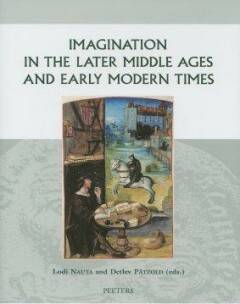
- Retrait gratuit dans votre magasin Club
- 7.000.000 titres dans notre catalogue
- Payer en toute sécurité
- Toujours un magasin près de chez vous
- Retrait gratuit dans votre magasin Club
- 7.000.0000 titres dans notre catalogue
- Payer en toute sécurité
- Toujours un magasin près de chez vous
Description
Imagination has always been recognised as an important faculty of the human soul. As mediator between the senses and reason, it is rooted in philosophical and psychological-medical theories of human sensation and cognition. Linked to these theories was the use of the imagination in rhetoric and the arts: images had not only an epistemological role in transmitting information from the outside world to the mind's inner eye, but could also be used to manipulate the emotions of the audience. In this tradition, with Cicero and Quintilian as its auctoritates, images were used to arouse and manipulate the emotions. Both traditions had to be revalued in the seventeenth century with the advent of a mechanist, Cartesian picture of human cognition and the physical world. In spite of their usual suspicion of imagination, which was commonly associated with illusions, dreams and fiction, seventeenth-century philosophers realised that the imagination also had its place in mathematical, scientific and philosophical thinking. This volume, number XII in the series Groningen Studies in Cultural Change, offers the papers presented at a workshop on imagination, organised by the editors in September 2002. It covers both the philosophical-psychological as well as the humanist-rhetorical traditions, discussing key figures such as Kilwardby, Lorenzo Valla, Leon Battista Alberti, Agricola, Gianfrancesco Pico, Erasmus, Paracelsus, Kepler, Bacon, Suarez, Descartes and Spinoza, but also treating hitherto neglected texts and writers such as Nicholas of Amsterdam and Jean Lemaire de Belges. By focusing on the ever-shifting ideas of the imagination as a philosophical and rhetorical tool, this volume not only deepens our understanding of its central theme but also sheds new light on the thought and writings of these and other authors.
Spécifications
Parties prenantes
- Auteur(s) :
- Editeur:
Contenu
- Nombre de pages :
- 213
- Langue:
- Anglais
- Collection :
- Tome:
- n° 12
Caractéristiques
- EAN:
- 9789042915350
- Date de parution :
- 31-12-04
- Format:
- Livre relié
- Format numérique:
- Genaaid
- Dimensions :
- 167 mm x 248 mm
- Poids :
- 476 g

Les avis
Nous publions uniquement les avis qui respectent les conditions requises. Consultez nos conditions pour les avis.






